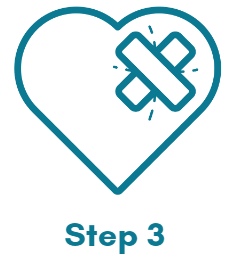What is Narrative Therapy?
 Storytelling has been a crucial part of human history since we developed language. One only needs to look at the cave paintings of the Stone Age, the complex tales told by ancient Egyptians, and the fact that mythology exists in every single culture, to see that humans make meaning and understand the world through story.
Storytelling has been a crucial part of human history since we developed language. One only needs to look at the cave paintings of the Stone Age, the complex tales told by ancient Egyptians, and the fact that mythology exists in every single culture, to see that humans make meaning and understand the world through story.
Narrative therapy intends to help clients make meaning and understanding of their world through story.
By providing clients with safety to explore, tell, and rewrite the stories of their own lives, this modality aims to help clients identify what values and skills they possess, in order to demonstrate that they are the experts of their lives.
Narrative therapy is empowering in that it works by first creating a separation between the individual and the problem they are facing, in order to demonstrate to the client that they have problems – they are not their problems.
By creating this space, narrative therapists help the individual internalize their strengths and competencies, and externalize their difficulties. Clients who use Narrative therapy often create storylines of their experiences to provide meaning, shift their thinking, and develop self-compassion.
What can you expect from Narrative Therapy?
Throughout the sessions, clients can expect their therapist to
 ask questions to deepen meaning,
ask questions to deepen meaning, - gently challenge the language they use to tell their story, and
- guide them to further explore this with a positive mindset.
The goal is to tell and re-tell the story using deeper meaning, identified strengths, resources, dignity, and perhaps even humor.
Therapists will also identify parts of the story that have been quickly explained or ignored, in order to understand why certain parts have been left out and how this can be changed. The goal of this approach is to empower clients to be able to tell their story without shame.
Narrative therapy is client-driven, so clients can expect therapists to ask open-ended questions and to help strengthen one’s self-worth.
What can Narrative Therapy help with?
Narrative therapy has been shown to help individuals struggling with various difficulties including:
- Anxiety
- Depression
- PTSD
- Trauma
- Grief
It has also been used in couples therapy and family therapy to support couples and families struggling with a myriad of difficulties.





